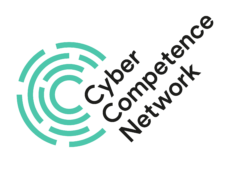The Communications Group was formed in February 2019 to announce the launch of all four pilots, resulting in a highly orchestrated, well synchronised set of press releases and social media outputs from the European Commission, the four pilots and their individual partners. From June to December, representatives of the four pilots appeared on panels at conferences, workshops and meetings, the length and breadth of Europe. Generally, the presentation of each pilot’s objectives lasted about 10-15 minutes … often resulting in more questions than answers. With the need for a single representative voice from across all four pilots, we created our common brand identity and launched the common website in June.
This ambition presents us with a number of challenges. Our primary conundrum was balancing the ideal – four different sets of messages that would sound better as one, with the reality – four different flavours of the same set of objectives with well-defined contractual commitments. Gradually as each project got to know itself, its strengths and points of differentiation, it has become easier to really collaborate and discover synergies. We work closely with the four pilot co-ordinators through their regular meetings with DG CONNECT to highlight and promote our ongoing joint activities and areas of intersection as now demonstrated in the seven focus groups sessions during this event.
Going forward we are tasked with reaching many of the same audiences as we communicate the progress of the cybersecurity network and centre and extrapolate its relevance to all citizens of Europe at a level that is clear, unambiguous and effective.
- Who do you think we should be focussing our message towards?
- What is the most important demographic for us to reach?
- How do we most effectively convey the importance of a strong and secure digital network?
Join our discussion to hear what we have achieved so far and share your ideas on what, why, when and how to communicate to our multiple audiences. Your input on these questions will be most welcome.
- Opening presentation
- Four questions and discussion
Moderator:
- Paula Brouillard-Molina, DG CONNECT
Panelists:
- Elisabete Carreira, SPARTA
- David Goodman, CyberSec4Europe
- Martin Horák, CONCORDIA
- Márton Kis, ECHO
Paula Brouillard-Molina, DG CONNECT
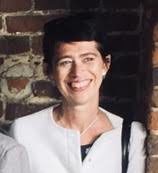 Paula Brouillard is Communication and Media Officer in DG CONNECT. Attached to the Cybersecurity Technology and Capacity Building unit, she works in designing, drafting and implementing the communication strategy for the cybersecurity file which is one of the highest priorities of the European Commission. Advising on communication tasks, using written and verbal sills, she daily creates a wide range of products and corporate communication material. She previously worked as press officer for cybersecurity (Cybersecurity Act, LTT Huawei, EU Agency for Cybersecurity, Cybersecurity in 5G, EU elections, Cyber Competence Center), eID, digital health, smart mobility and the MEDIA Programme . She also conceptualised, implemented and coordinated the communication strategies and tools of DG CONNECT flagship events (Digital4Her, EU Media literacy conference, Digital Day, ICT conference). Before joining the Commission in 1999, she studied in Brussels and Bordeaux and succeeded with a Masters in Press and Information (IHECS, Brussels).
Paula Brouillard is Communication and Media Officer in DG CONNECT. Attached to the Cybersecurity Technology and Capacity Building unit, she works in designing, drafting and implementing the communication strategy for the cybersecurity file which is one of the highest priorities of the European Commission. Advising on communication tasks, using written and verbal sills, she daily creates a wide range of products and corporate communication material. She previously worked as press officer for cybersecurity (Cybersecurity Act, LTT Huawei, EU Agency for Cybersecurity, Cybersecurity in 5G, EU elections, Cyber Competence Center), eID, digital health, smart mobility and the MEDIA Programme . She also conceptualised, implemented and coordinated the communication strategies and tools of DG CONNECT flagship events (Digital4Her, EU Media literacy conference, Digital Day, ICT conference). Before joining the Commission in 1999, she studied in Brussels and Bordeaux and succeeded with a Masters in Press and Information (IHECS, Brussels).
Elisabete Carreira, SPARTA
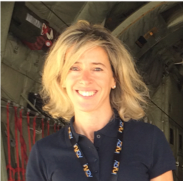 Elisabete Carreira is technical advisor to the Board of Directors of INOV, for management and organisational aspects, with over 20 years of proven experience in management consultancy, business process analysis as well as in internal auditing and control. She started her higher education in France and, after having moved to Portugal, finished her degree in Sociology at ISCTE, Technical University of Lisbon. Later she received an MBA from Universidade Católica (Lisbon) and became a Certified Project Management Associate (from International Project Management Association). She is also a board member of INESC Serviços, a Shared Services Center that centralises back-office operations and R&D project management of INESC (the biggest R&D institute in Portugal). Her current areas of research are focused on risk and resilience management, specifically organisational and community resilience to foster and link societal network structures with organisational structures, with special focus on the human factors dimension.
Elisabete Carreira is technical advisor to the Board of Directors of INOV, for management and organisational aspects, with over 20 years of proven experience in management consultancy, business process analysis as well as in internal auditing and control. She started her higher education in France and, after having moved to Portugal, finished her degree in Sociology at ISCTE, Technical University of Lisbon. Later she received an MBA from Universidade Católica (Lisbon) and became a Certified Project Management Associate (from International Project Management Association). She is also a board member of INESC Serviços, a Shared Services Center that centralises back-office operations and R&D project management of INESC (the biggest R&D institute in Portugal). Her current areas of research are focused on risk and resilience management, specifically organisational and community resilience to foster and link societal network structures with organisational structures, with special focus on the human factors dimension.
David Goodman, CyberSec4Europe
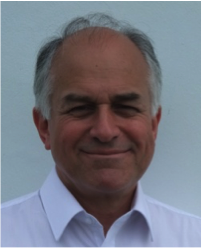
David Goodman is a consultant working in digital transformation, specifically the areas of identity management and security, data protection and privacy regulation as well as emerging technologies. He has worked in senior management positions across a wide range of companies in Europe and North America from start-ups (Soft-Switch, Metamerge) to global brands (Lotus Development, IBM, Nokia Siemens Networks and Ericsson) as well as University College London. David is currently a principal consulting analyst with TechVision Research, chief evangelist with iGrant.io, a senior consultant with Trust in Digital Life association and, until recently, executive director of the Open Identity Exchange (OIX). He is work package leader for dissemination and communication in the CyberSec4Europe and CSI-COP H2020 projects, and task leader for Open Banking roadmapping and demonstrators in CyberSec4Europe. David has a BA from the University of Manchester and a D.Phil. from the Oriental Institute, University of Oxford.
Martin Horák, CONCORDIA
 Martin Horák is a member of CSIRT-MU and he leads public relations and technology marketing at the Center for Education, Research and Innovation in Information and Communication Technologies at Masaryk University. He focuses in particular on the interdisciplinary use of knowledge of strategic communication, service design and cognitive psychology in the domain of cybersecurity. He is the task leader for dissemination and communication in CONCORDIA. Martin graduated from the Faculty of Law and the Faculty of Arts of Masaryk University.
Martin Horák is a member of CSIRT-MU and he leads public relations and technology marketing at the Center for Education, Research and Innovation in Information and Communication Technologies at Masaryk University. He focuses in particular on the interdisciplinary use of knowledge of strategic communication, service design and cognitive psychology in the domain of cybersecurity. He is the task leader for dissemination and communication in CONCORDIA. Martin graduated from the Faculty of Law and the Faculty of Arts of Masaryk University.
.
Márton Kis, ECHO
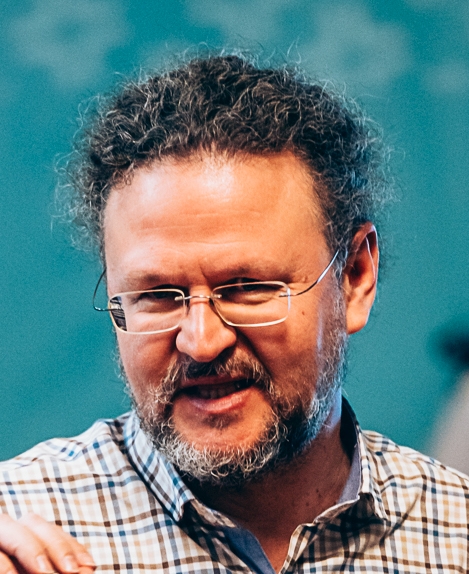 Márton Kis MBA, MSc, a health innovation expert, was originally a financial economist and innovation enthusiast. Márton gathered his experience in the field of banking, telecommunication, IT, media, trade, sport and healthcare, in the management of different Hungarian and international companies. Since joining Semmelweis HSMTC in the autumn of 2014, he has been actively contributing to a number of Hungarian and international projects focusing on digitalisation and re-organisation of the healthcare sector on both a national and an EU level. He is an active member of the eHealth team of HSMTC, and gives lectures about innovation and change management.
Márton Kis MBA, MSc, a health innovation expert, was originally a financial economist and innovation enthusiast. Márton gathered his experience in the field of banking, telecommunication, IT, media, trade, sport and healthcare, in the management of different Hungarian and international companies. Since joining Semmelweis HSMTC in the autumn of 2014, he has been actively contributing to a number of Hungarian and international projects focusing on digitalisation and re-organisation of the healthcare sector on both a national and an EU level. He is an active member of the eHealth team of HSMTC, and gives lectures about innovation and change management.
